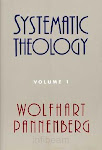“It's only human.” An expression everyone has heard, and most of us use. But what is its purpose, exactly?
I'd call it a “humane” expression. We often use it as a reassuring comment intended to lift the spirits of a person who is feeling down. But the “downess” cannot have been caused just by any kind of misfortune. If somebody lost, say, their house in a fire, you would not console them by saying, “Don't worry, it's only human.” (“Shit happens,” would be more appropriate, but if the other lacks a sense of humour, not very comforting.)
The cause of the misfortune must be human somehow. But how, exactly?
Could it be a blunder of some sort? I guess if I slipped or bumped my head, you could say, “Poor you. But it's only human.” It is, in fact, quite true: clumsiness is a characteristic peculiar to us humans, most of the animal kindom is not clumsy at all. But still, the expression would ill fit these kind of experiences, even if they are “human” in one sense.
By ruling out non-human and certain types of human incidents, we are near to locating the core of the answer. Isn't it true that the human behaviour we are looking for must be moral behaviour?
“It's only human that I drank a bit too much,” or “It's only human -- how could your wife not understand? -- that you fell in love with this woman,” or “It's only human that you lost your temper.”
And herein lies a danger. It is very true that we do many mistakes or (more often a better word) evil things that are dishonest and/or hurt people. It is, in this sense, human. But we must be careful lest this expression lapses into, not an affectionate way of cheering up a friend, but into a kind of moral “alibi”, a justification for the deed done.
It is also interesting that the expression (“It's only human”) is reserved solely for human blunders. What about human excellences, human achievements?
If I am free of guilt because, after all, “it's only human”, logically I should also be free of merit (e.g. for being a good person, for being multilingual, for making a world-healing scientific breakthrough) because, after all, “it's only human”.
1 month ago







5 comments:
Great article! But, as you know, it's only human.
Had to share this book:
To Engineer is Human.
Thanks. It's a milestone in modern thought. Too bad I can't take credit for it.
As for the book, it reminded me of Thomas Kuhn's famous "The Structure of Scientific Revolutions". I don't know how to hyperlink it so here it is:
http://en.wikipedia.org/wiki/The_Structure_of_Scientific_Revolutions
It was one of the last books I read for school (very easy reading, could be read in highschool) and definitely among the most pleasurable ones.
By the way, "To Engineer is Human" sounds like something you could use in your thesis, no?
Jason
good stuff. I've always thought it this way: the saying assumes the goodness of everything that's human, and that's obviously false.
Jason, good thinking! I did check the first pages of the book, but I couldn't find good enough stuff to convince me to order the book.
Post a Comment